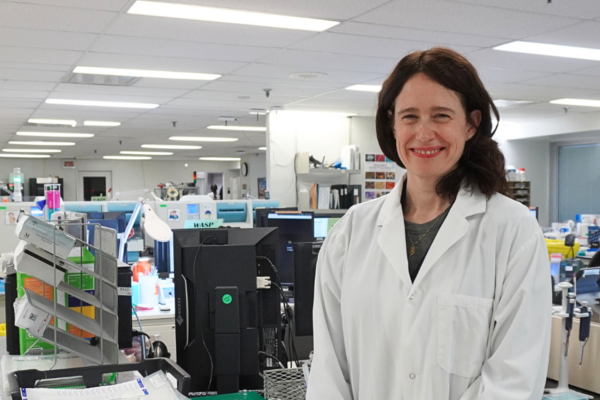Main Second Level Navigation
Nov 17, 2023
U of T Scientists discover a century of safe and effective use of Phage Therapy
Programs: Postgraduate, Programs: Undergraduate, Research: Genetics, Genomics & Proteomics, Research: Infectious diseases & immunopathology, Impactful research, Disruptive Innovation, Dynamic Collaboration, Alumni

L-R: Dr. Jonathan Cook and Dr. Greg German



